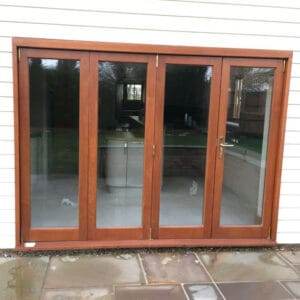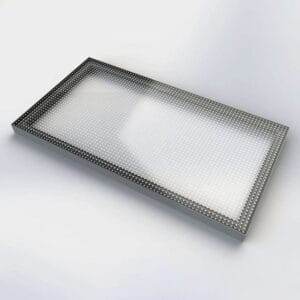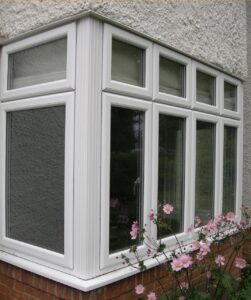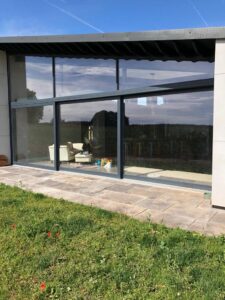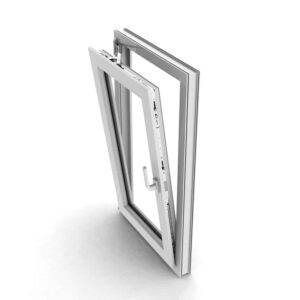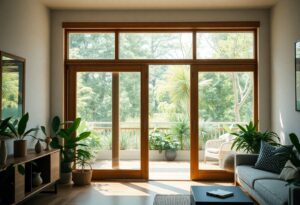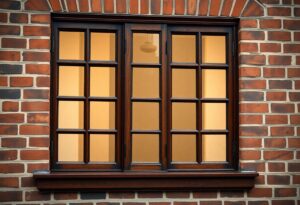You may not realise the significant impact that high performance windows can have on your home. These windows not only enhance energy efficiency by reducing heat loss and lowering energy bills, but they also play an important role in noise control. By creating a better acoustic barrier, these windows can effectively minimise disruptive outside sounds, allowing you to enjoy a quieter, more comfortable living environment. Investing in high performance windows delivers both savings and peace of mind for your home.
The Importance of Energy Efficiency
The importance of energy efficiency cannot be overstated in today’s world. By reducing energy consumption, you not only contribute to a healthier planet but also save money on your energy bills. High-performance windows play a significant role in maintaining energy efficiency in your home, enabling you to control indoor temperatures and reduce reliance on heating and cooling systems.
Benefits of Energy Savings
At the forefront of energy-efficient windows are the financial and environmental advantages they offer. Installing these windows can lead to a 30% reduction in energy bills while lowering your carbon footprint significantly. With households consuming up to 29% of total energy for heating and cooling, the savings become evident. Opting for energy-efficient windows could save you hundreds annually on energy costs (important decisions like this benefit not only your wallet but the environment too).
Energy Efficiency Standards
At the heart of energy efficiency are various ratings and certifications, such as Energy Star, which indicate how well a window performs thermally. When dicking out high-performance windows, look for labels that verify their efficiency, such as U-factor and Solar Heat Gain Coefficient ratings. These ratings help you identify products that will best serve your energy-efficient goals (choosing windows that meet these standards ensures lasting benefits).
This guide aims to clarify the energy efficiency standards to help you make an informed decision. Knowing the specific window ratings that matter most will enable you to elevate the comfort and efficiency of your home. By selecting windows with the highest ratings, you contribute to a sustainable future and realise significant energy savings (the right choice now could lead to better living conditions and financial relief in the long run).
Understanding Noise Control
Some of the most significant disruptions in your living space arise from external noise pollution, which can adversely impact your health and well-being. Noise pollution, typically defined as sounds that are disruptive to one’s quality of life—such as traffic, construction, and loud neighbours—can lead to increased stress, anxiety, and sleep disturbances. It is necessary to recognise the implications of these disturbances on your overall health, as chronic exposure can result in serious conditions such as cardiovascular disease. (Investing in noise-reducing measures is vital for a peaceful home environment.)
The Impact of Noise Pollution
Noise pollution creates a range of negative effects on your health, not limited to elevated stress levels and disruptions in sleep patterns. Defined as any unwanted or harmful sound in residential areas, it encompasses various disturbances that can interrupt your daily life, leading to fatigue and irritability. With studies linking excessive noise exposure to severe health repercussions, it’s evident that addressing noise pollution is paramount for maintaining your well-being. (To protect your health, you should consider actionable steps to reduce noise in your surroundings.)
Mechanisms of Noise Reduction
Among the physical properties of high-performance windows are advanced features such as double glazing and specialised frame materials, which significantly contribute to noise control. These windows are designed to create an effective acoustic barrier, outperforming standard single-glazed options. The insulation properties of the double-glazed panes prevent external noise from penetrating your home, ensuring a quieter environment. (Choosing high-performance windows can dramatically enhance your living conditions by limiting intrusive sounds.)
Noise reduction is primarily achieved through the composition of the materials and the space between the layers in double glazing, which absorbs sound waves more effectively than traditional options. Additionally, window frames made from thermally efficient materials work in tandem to minimise sound transmission further, providing you with a serene indoor setting. By opting for these advanced solutions, you enhance your comfort and protect your peace of mind. (The right choice in window materials can significantly improve your living environment.)
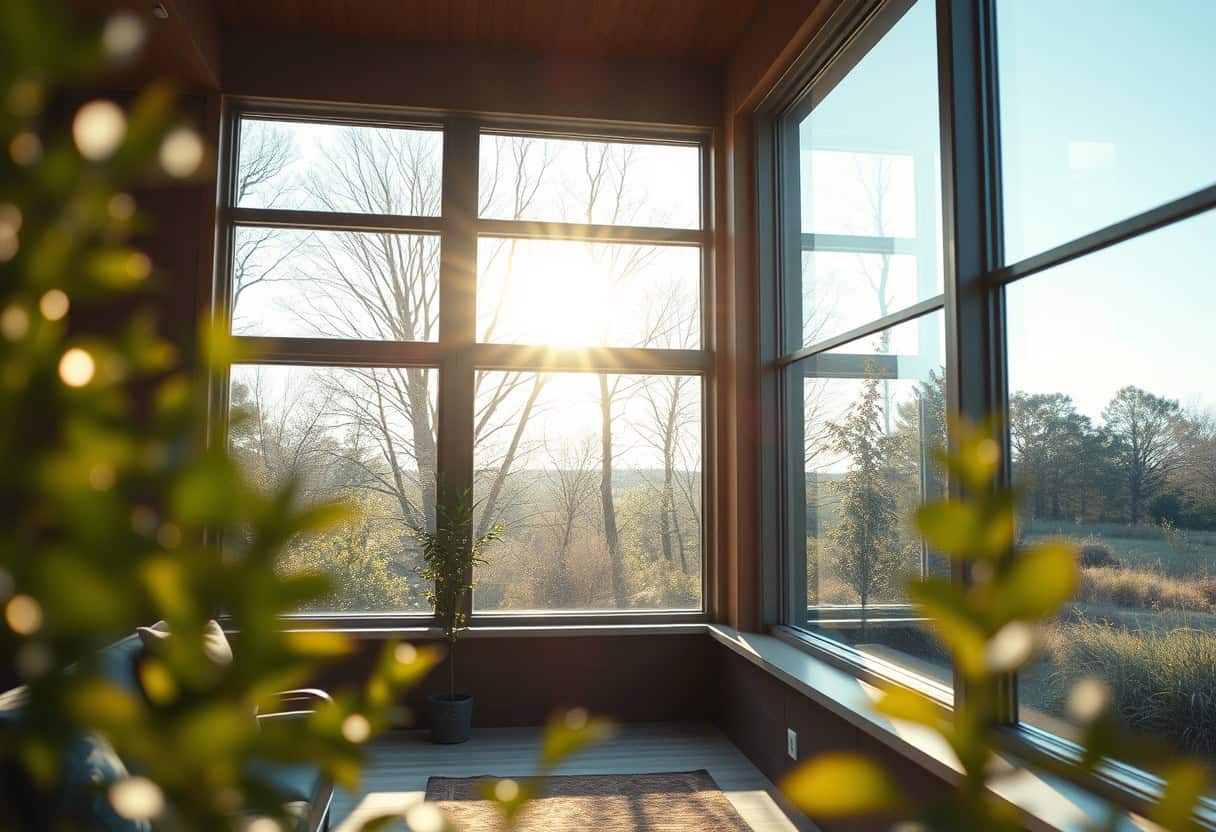
Technologies in High-Performance Windows
Any discussion of high-performance windows is incomplete without acknowledging the advanced technologies that enhance their efficacy. These innovations not only contribute to energy savings but also play a significant role in noise attenuation. Incorporating materials and designs that optimise thermal insulation and soundproofing is vital, making your investment in high-performance windows both sustainable and beneficial for your living environment.
Insulating Glass Units
Below, you will find that insulating glass units (IGUs) are a fundamental component of high-performance windows. These units typically consist of two or more panes of glass separated by a spacer, which can be filled with inert gases such as argon or krypton to improve thermal performance. Additionally, advancements like low-emissivity (Low-E) coatings significantly reduce heat transfer, enhancing energy efficiency and comfort within your home.
Frame Materials and Designs
Windows are available in various frame materials including vinyl, wood, and fiberglass, each contributing uniquely to energy efficiency and noise reduction. Vinyl frames, for instance, offer excellent insulation and require little maintenance, while wood frames provide natural aesthetics and thermal performance. Fiberglass frames are known for their durability and resistance to extreme temperatures. Choosing the right frame design can significantly affect your home’s insulation properties, ultimately enhancing your comfort and decreasing your energy bills.
Another important consideration is how different materials enhance your window’s overall performance. Vinyl frames are lightweight and energy-efficient but can warp in extreme heat. Wood frames offer superior insulation but require regular maintenance. On the other hand, fibreglass frames are extremely durable and energy-efficient. Each frame type presents its own set of advantages and disadvantages, so evaluating your specific needs is vital for balancing aesthetics with performance in your choice of high-performance windows.
Cost Considerations and Payback Period
Your decision to invest in high-performance windows involves careful consideration of initial costs against the long-term benefits. While the upfront investment can be substantial, typically ranging from £500 to £1,200 per window, the energy savings can result in a payback period of about 5 to 10 years. This translates to significant reductions in energy bills over time, often amounting to thousands of pounds in savings (weigh these factors before making a final commitment).
Initial Investment vs. Long-Term Savings
After evaluating the initial investment for high-performance windows, you’ll find that the long-term savings on energy bills present a compelling argument. While the upfront costs may be daunting, often exceeding £1,000 per window, the energy efficiency can lead to savings of approximately 20 to 30% on heating and cooling costs, resulting in a payback period of around 5 to 7 years. It’s imperative to factor in the overall improvement in home comfort when considering this investment (be sure to analyse your budget and financial options before proceeding).
Incentives and Rebates
One of the standout features of investing in high-performance windows is the availability of various incentives and rebates that can significantly alleviate initial costs. Homeowners can benefit from tax credits, local utility rebates, and financing options designed to support energy efficiency upgrades. To access these incentives, you can visit government websites or contact your local energy provider for detailed information (explore all available incentives to maximise your financial savings).
Due to the diverse range of incentives, you’ll find various programs that can help reduce your financial burden when purchasing high-performance windows. These incentives can include cash rebates, tax credits up to 30% of the installation cost, or low-interest financing options. Notably, some regions offer additional grants for energy efficiency improvements, making this investment even more appealing (fully exploring these opportunities could enhance your overall savings significantly).
Case Studies
Many case studies illustrate the effectiveness of high-performance windows in achieving energy savings and noise control. Here are some notable examples:
- Home A reduced energy bills by 25% after installing triple-glazed windows.
- Office B reported a 40% decrease in outside noise after upgrading to high-performance glazing.
- Building C achieved a 30% improvement in energy efficiency rates within the first year of installation.
- Facility D experienced a significant uplift in tenant satisfaction due to reduced heating and cooling costs.
For more insights, visit The Most Energy Efficient Windows (2024).
Residential Applications
Residential projects demonstrate the benefits of high-performance windows, showcasing successful installations that lead to substantial energy savings and improved noise reduction. For instance, family homes have reported a decline in energy usage by 20-30% after integrating these advanced windows, while the tranquillity from outside disturbances enhanced the overall living experience.
Commercial Projects
Among the commercial sector, numerous projects have seen remarkable outcomes after opting for high-performance windows. These installations markedly improve energy consumption and tenant satisfaction, ensuring a more sustainable and comfortable environment.
To highlight, you can observe significant reductions in energy costs by up to 50% in some buildings after installing these windows, which contributes to a more sustainable operational footprint. Additionally, tenants often express increased satisfaction due to better temperature control and reduced exterior noise disruption, resulting in a more enjoyable workplace. Investing in high-performance windows not only benefits the environment but also enhances the welfare of those who occupy these spaces.
Maintenance and Longevity
To ensure the longevity and performance of your high-performance windows, regular maintenance is important. Simple tasks such as cleaning the glass with a mild soap solution and inspecting seals for wear can help maintain both efficiency and appearance. Ensure the tracks are free from dirt and debris, and check for any signs of condensation between panes, which may indicate seal failure. Regular inspections, ideally twice a year, can help you catch potential issues early, ensuring your windows continue to enhance your home for years to come.
Caring for High-Performance Windows
For the upkeep of your high-performance windows, start by cleaning the glass surfaces with a soft cloth and a gentle cleaner to prevent scratches. Avoid abrasive materials that can damage the window’s surface. Check the frames and seals for any signs of deterioration or damage and address any issues immediately to prevent further complications. Lubricating moving parts, such as locks and hinges, enhances their efficiency. Such care not only preserves their aesthetics but also contributes to their energy-saving abilities.
Lifespan Expectations
Below, you can expect your high-performance windows to last significantly longer than traditional options, often exceeding 20 years with proper upkeep. Factors such as environmental conditions, the quality of installation, and material types can greatly influence durability. While traditional windows may require more frequent replacement, high-performance windows offer resilience against fading, warping, and air leakage, making them a worthwhile investment for your home.
Considering the lifespan of high-performance windows, their durability is often superior to that of traditional windows, which generally need replacement every 10 to 15 years. High-performance options benefit from advanced materials and manufacturing processes that enhance their resistance to the elements. Moreover, proper maintenance can further extend this lifespan, allowing you to enjoy energy savings and noise control for longer periods. The initial investment in high-performance windows pays off in reduced energy costs and fewer replacements over time.
Summing up
From above, it’s clear that high-performance windows serve a dual purpose in your home by providing significant energy savings and effective noise control. By investing in these windows, you enhance your living environment while reducing utility costs. This not only contributes to a quieter home but also supports your overall comfort. To investigate deeper into the benefits, consider checking out What Are The Benefits of Double Pane Windows vs Single … for more insights.
FAQ
Q: What are high performance windows?
A: High performance windows are specially designed windows that enhance energy efficiency by reducing heat transfer and improving insulation. They typically feature multiple glazing layers, low-emissivity (Low-E) coatings, and gas fills between panes to optimise thermal performance. This results in lower energy bills while maintaining indoor comfort.
Q: How do high performance windows contribute to energy savings?
A: These windows minimise heat loss during colder months and reduce heat gain in the summer. By optimising insulation and decreasing the reliance on heating and cooling systems, they lead to significant energy savings over time. This efficiency not only benefits homeowners but also supports environmental sustainability by lowering overall energy consumption.
Q: Can high performance windows help with noise control?
A: Yes, high performance windows can substantially reduce noise pollution. The combination of multiple glazing layers and specialised seals helps to absorb and dampen sound vibrations, making interiors quieter. This is particularly beneficial for homes located in busy urban areas or near transportation hubs.
Q: Are high performance windows more expensive than standard windows?
A: While the initial investment for high performance windows may be higher than standard options, the long-term savings on energy bills and increased comfort can offset these costs. Additionally, many local governments offer incentives and rebates for energy-efficient home improvements, making them a more viable financial option.
Q: How do I know if high performance windows are right for my home?
A: Assessing your home’s current energy efficiency, noise issues, and climate can help determine if high performance windows are a suitable upgrade. Consulting with a professional can provide insights on potential benefits and the best window options tailored to your specific needs and local conditions.
Q: What features should I look for in high performance windows?
A: Key features to consider include the number of glazing layers (double or triple-paned), Low-E coatings, argon or krypton gas fills, and thermal breaks in the frame. Additionally, look for windows certified by energy efficiency programmes, such as the Energy Star label, to ensure they meet high performance standards.
Q: Can I install high performance windows myself?
A: While some homeowners may consider DIY installation, high performance windows often require precise measurements and professional knowledge regarding sealing and insulation. Hiring experienced professionals can ensure proper installation, maximising the benefits of energy savings and noise reduction. It’s advisable to consult with specialists to achieve optimal results.

